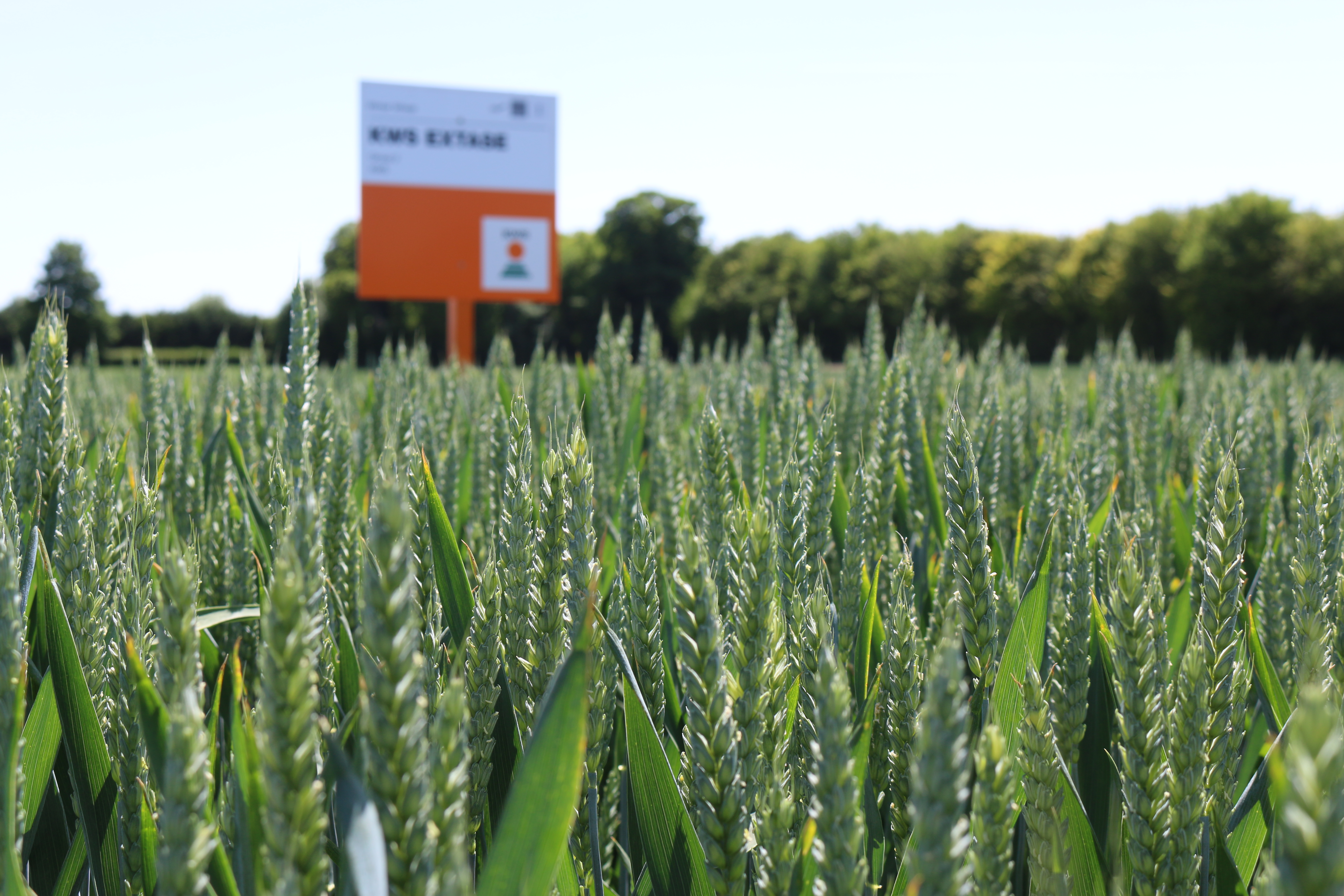Why Group 2 is an increasingly profitable option for many UK wheat growers
KWS Extase has established a new benchmark for Group 2 wheat in the UK with its versatility, favourable agronomic characteristics and performance gaining it a huge following, says KWS cereals product manager Dr. Kirsty Richards.
The variety's proven track record has earned it a place amongst the UK’s most successful milling wheats ever, she believes.
"It's arguably the most exciting Group 2 to make the Recommended List since the turn of the millennium, trumping all others for profitability when grown in the right conditions.
"A specific weight of 79.4 kg/hl and a Hagberg Falling Number (HFN) of 294 are amongst the highest scores of any recommended breadmaking wheat.
"Plus, KWS Extase is the only Group 2 variety to be supported by a buy-back contract for full milling specification through to lower protein flours by many national millers."
The variety’s exceptional untreated yield of 97% of treated controls is 2% ahead of the next best performer and owes much to its unprecedented resistance to Septoria tritici, she points out.
“Since 20 May 2020 growers have also no longer been able to apply Chlorothalonil, which has put a hole in Septoria control for many so good genetics are a key part of the solution.
"When initially recommended it was the first ever to be awarded a score over 8.0 for Septoria resistance and is currently rated 7.8, with an 8 for yellow rust and a 6 for brown rust.
"With stiff, strong straw KWS Extase is one of the earliest maturing varieties on the Recommended List and will hold strong appeal for farms in the East, as well as those looking for complementary varieties to spread the harvest workload.
"Early maturity and good wet-weather disease resistance also supports its appeal in the West and Northern England."
It just ticks so many boxes and, as the current mainstay variety, accounts for fifty per cent of our 650ha of wheat.
Growers interested in Group 2 should start their selection process by looking at KWS Extase but there are other highly attractive options, Kirsty Richards advises.
"Key considerations will be the availability of good milling contracts nearby and whether this variety is right for their location, as its rapid growth habit does not suit early drilling or very fertile soils.
“Many will choose KWS Extase for its combination of good septoria control with high untreated yields which gives flexibility around spray windows, but they should also consider the regional yields and performance of two other KWS Group 2 varieties, KWS Palladium and KWS Ultimatum.
"Just like KWS Extase, both have extremely high untreated yields and bring real flexibility in terms of their management.”
KWS Palladium is a new and exciting addition to the UK domestic bread market. A super-clean variety with one of the highest untreated yields available it is potentially an excellent alternative, she explains.
"Superb on heavier land it delivers a solid second wheat performance, particularly where the focus is on premium markets.
"It is also a great all-round wheat for eastern areas of the UK and the best Group 2 for early drilling, thanks to its very stiff straw."
Added to the 2023/24 Recommended List, KWS Ultimatum achieves a commendable yield of 101% of controls for the whole of the UK, fractionally behind KWS Extase, rising to 103% in the North, she adds.
"Delivering impressive performance in the second wheat spot, where 60% of milling wheats and 40% of wheat overall is grown, KWS Ultimatum yields 102% of controls and performs equally well on heavy or light soils.
"Its excellent untreated yield, 93% of controls, is just behind KWS Extase and supported by a first-rate disease package which includes a 9 for yellow rust and a 6 for brown rust, giving a better combination of rust resistances than similar varieties.
"In terms of quality, KWS Ultimatum has the best resistance to sprouting in the breadmaking sector, an especially important trait for growers aiming to achieve premium specifications and those in tougher microclimates.
"The variety delivers a protein content of 12.3%, an HFN of 287, a specific weight of 79.6 kg/hl and has been rated as Group 2 by the UK Flour Millers, with the bonus of UKP Export status.
"If a premium is available KWS Ultimatum can help growers to take advantage of that, but, as with KWS Palladium, in certain regions their high yield and specific weight often makes them a better bet as feed wheats than many competitors."
KWS Extase ticks all the boxes
Speed of development from late drilling and disease resistance are the main reasons why Brixworth Farming in North Northamptonshire has gone into Group 2 KWS Extase in such a big way over the last three years.
“It just ticks so many boxes and, as the current mainstay variety, accounts for fifty per cent of our 650ha of wheat,” says Brixworth's Ian Matts.
BASIS and FACTS certified, Ian is keen to make best use of precision farming, combined with the careful selection of varieties and tailored use of inputs to deliver optimum, sustainable, economic yields.
"Currently we have the Group 2 KWS Extase, the hard Group 4s KWS Dawsum and Gleam, together with the Group 3 soft milling wheat LG Astronomer.
“Gleam always looks like it is struggling and never fills me with confidence but has always performed well for us. KWS Extase (Boisseau x Solheio) is a complete contrast, a big, beefy, smothering variety that has been fantastic in all situations, can be drilled late and is early to harvest.
“We first grew KWS Extase three years ago based on its Recommended List performance, the fact that it did not have Cougar in its parentage, and because its untreated yield was the best (97%).
"That is important because I like to see how varieties perform with and without chemistry.
“The robust all-round disease package which KWS Extase provides and the variety’s exceptional Septoria tritici resistance (7.8) are also big considerations in its favour."
"Last year it was the only winter wheat not to get a T0 and the only one where we did not need to control yellow rust, but nevertheless it looked good throughout the season."
Your consultants

